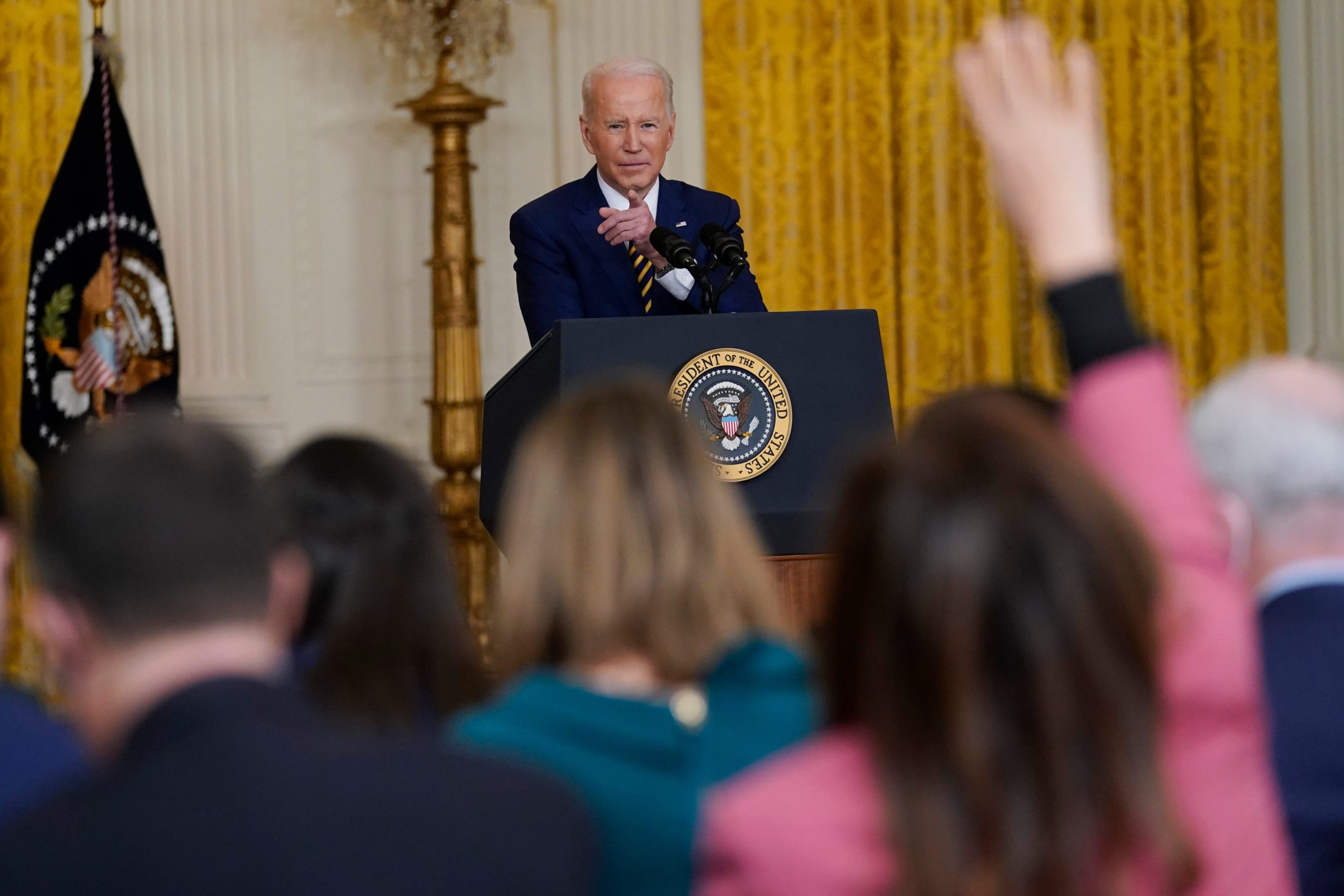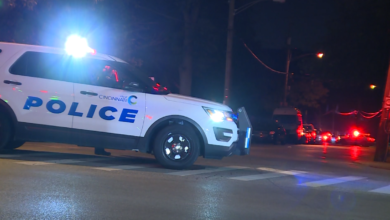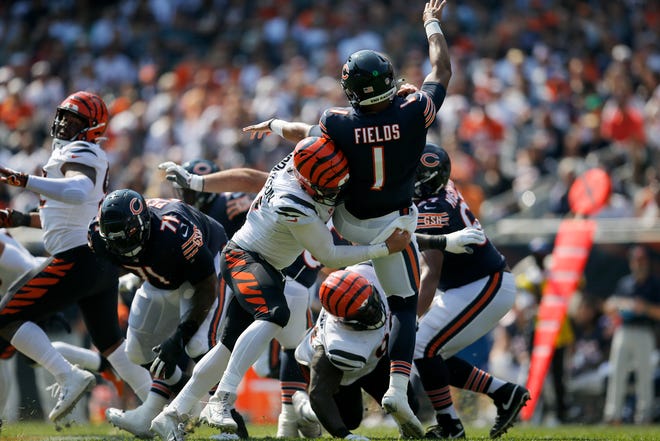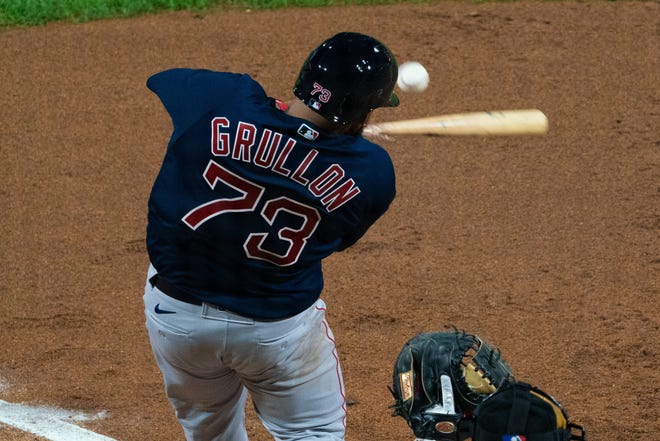

WASHINGTON — Ukraine's president pushed back Thursday on President Joe Biden's suggestion that a "minor incursion" by Russia into Ukraine might not merit a strong international response.
"We want to remind the great powers that there are no minor incursions and small nations," Ukrainian President Volodymyr Zelenskyy wrote in a tweet Thursday morning. "Just as there are no minor casualties and little grief from the loss of loved ones. I say this as the President of a great power."
Zelenskyy's comment was a remarkable retort from a close U.S. ally that has received millions of dollars in military assistance.
During a news conference Wednesday, Biden said the U.S. would hold Russian President Vladimir Putin accountable if Russia invades Ukraine but suggested the consequences would depend on the extent of Russia's aggression toward its neighbor.
"It depends on what (Russia) does. It's one thing if it's a minor incursion and we end up having to fight about we have to do and not do," Biden said in his remarks. The president also predicted that Russia would invade Ukraine, even as he warned of "severe economic consequences" if that happens.
The comments sparked a fierce backlash from Republican lawmakers, and the White House has scrambled to clarify the president's remark.
On Thursday, Biden said any Russian forces crossing into Ukraine would constitute an invasion.
"If any assembled Russian units move across the Ukrainian border, that is an invasion. Let there be no doubt if Putin makes this choice, Russia will pay a heavy price," Biden told reporters before a meeting with his infrastructure task force.
"The Ukrainian foreign minister said this morning he's confident of our support and resolve, and he has a right to be," the president added.
Biden's remarks came on the heels of a similar statement, sent out Wednesday night, from White House press secretary Jen Psaki.
Incursion v. invasion
Republican lawmakers said Biden's comment was deeply problematic and could be seen by Putin as a free pass to invade Ukraine. Russia has amassed more than 100,000 troops along Ukraine's border.
“President Biden’s remarks on Russia’s buildup near Ukraine tonight were nothing short of a disaster," Rep. Michael McCaul, R-Texas, the top Republican on the House Foreign Affairs Committee, said in a statement Wednesday.
"He shared the potential disunity of Western nations on tough sanctions and clearly gave Vladimir Putin the green light to launch a ‘minor incursion'," McCaul argued.
Sen. Rob Portman, R-Ohio, who recently visited Kyiv to meet with Ukrainian leaders, wrote on Twitter that he was "deeply troubled" by Biden's insinuation that a Russian invasion may just be “a minor incursion.”
Portman said "any Russian military incursion into Ukraine should be viewed as a major one that could likely destabilize Ukraine and Europe."
Leading Democratic lawmakers also pushed back on Biden's remarks, though they said Biden understands what's at stake and fully supports Ukraine.
"He was obviously very interested and very strong on taking action against whatever Vladimir Putin does in Ukraine. I think he misspoke at his press conference, but I am comfortable that we are looking at a range of scenarios and the appropriate responses to whatever Putin does," Sen. Jeanne Shaheen, D-N.H., who also traveled to Kyiv, said during a Thursday press briefing.
"Russia’s short-term goal is to get Ukraine back into its orbit. Russia’s long-term goal is to smash NATO," Sen. Chris Murphy, D-Conn., who also joined his Senate colleagues in Kyiv, wrote on Twitter.
"Biden understands that Putin is using the short-term goal as a wedge to achieve the long-term goal. That’s why we must get NATO unified on Ukraine policy," Murphy continued.
Biden aides brace for the worst
Ahead of his meeting with his Russian counterpart on Friday in Geneva, Secretary of State Antony Blinken said Russian officials have "rebuffed" diplomatic efforts to defuse the situation.
Blinken also warned that the conflict had deep implications for other countries in the region and around the world, calling it "a crisis with global consequences" that "requires global attention and action."
Blinken reiterated that a Russian invasion would result in immediate economic sanctions on the country. US officials and NATO allies have also indicated in recent days they will support an insurgency effort in Ukraine, potentially prolonging the fighting into a brutal and costly conflict.
"The human toll of renewed aggression by Russia would be many magnitudes higher than what we've seen to date," he cautioned, asking if Russian families would be willing to tolerate the high costs of war.
Blinken is among a number of Biden administration officials working to unify NATO and reassure Ukraine as the threat of a Russian attack looms.
On Thursday, Biden's national security advisor, Jake Sullivan, met with his counterparts in the eastern European NATO states, known as the "Bucharest Nine," to assure them of the US military commitment to their defense. Sullivan also briefed the group on Blinken's diplomatic efforts ahead of his meeting with Sergey Lavrov, his Russian counterpart.
The State Department also announced Thursday new sanctions on four Ukrainian officials who the Biden administration says are responsible for "recruiting Ukrainian nationals in key positions to gain access to sensitive information."
The list includes two current Ukrainian members of parliament, Taras Kozak and Oleh Voloshyn, and two "FSB-connected former Ukrainian officials," Volodymyr Oliynyk and Vladimir Sivkovich.
Follow Matthew Brown online @mrbrownsir.
Michael Collins contributed to this report.








